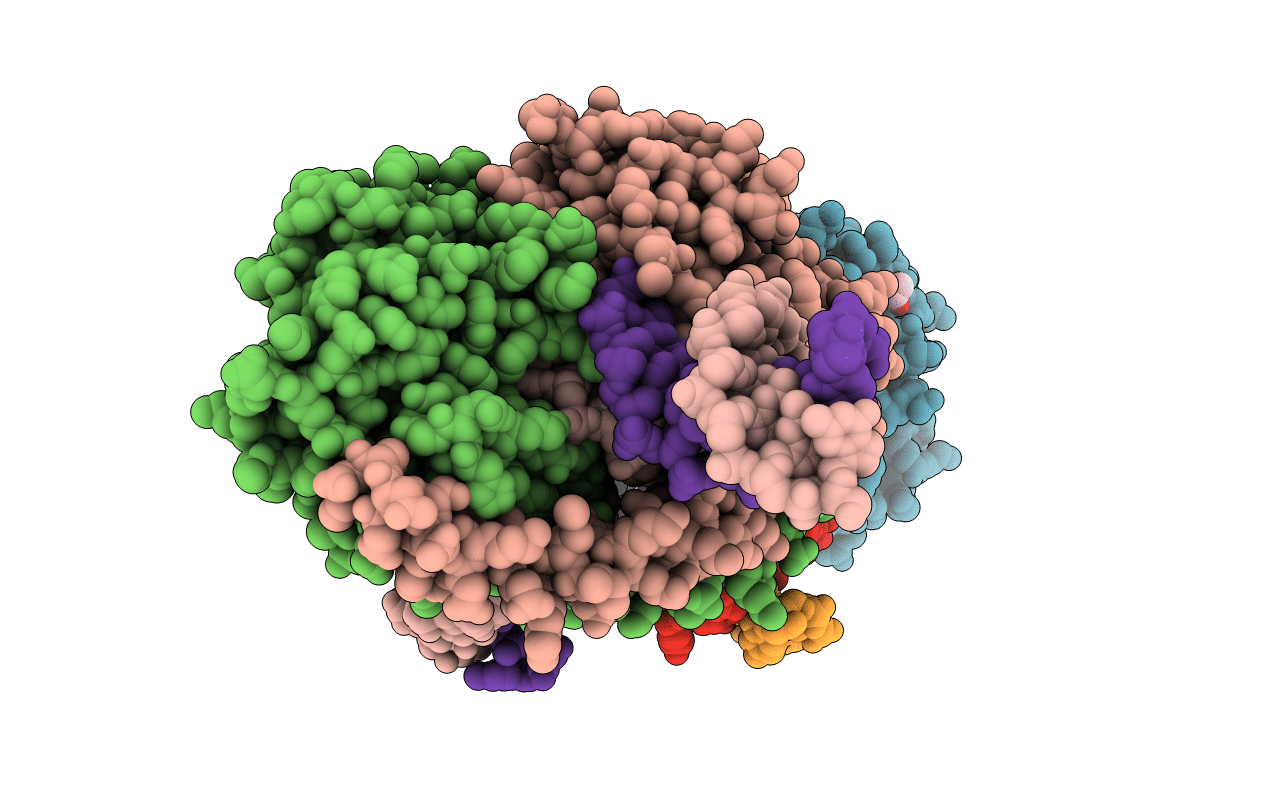
Deposition Date
2016-09-28
Release Date
2016-12-21
Last Version Date
2024-11-20
Entry Detail
PDB ID:
5TGX
Keywords:
Title:
Restriction/modification system-Type II R-SwaI complexed with partially cleaved DNA
Biological Source:
Source Organism(s):
Staphylococcus warneri (Taxon ID: 1292)
synthetic construct (Taxon ID: 32630)
synthetic construct (Taxon ID: 32630)
Expression System(s):
Method Details:
Experimental Method:
Resolution:
2.30 Å
R-Value Free:
0.24
R-Value Work:
0.19
R-Value Observed:
0.19
Space Group:
P 1 21 1


